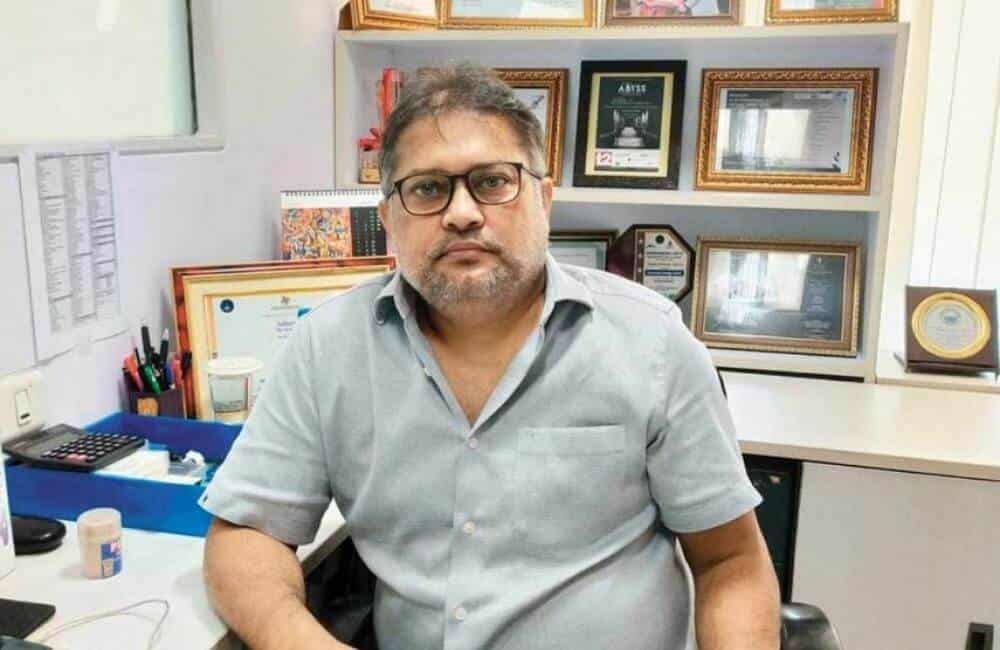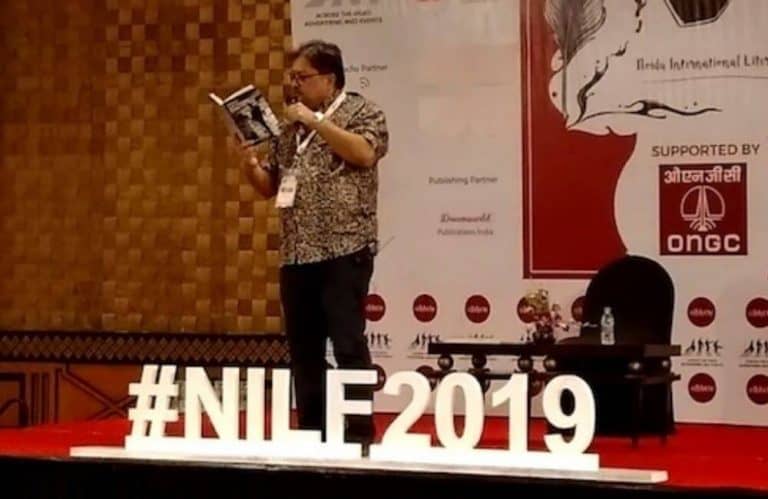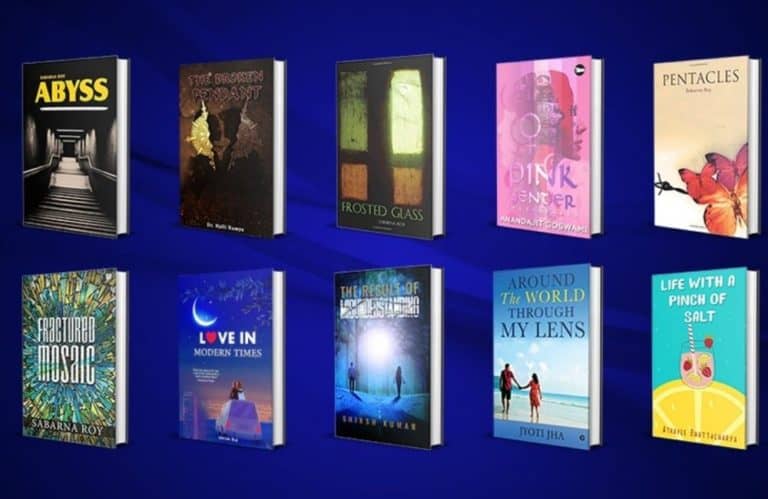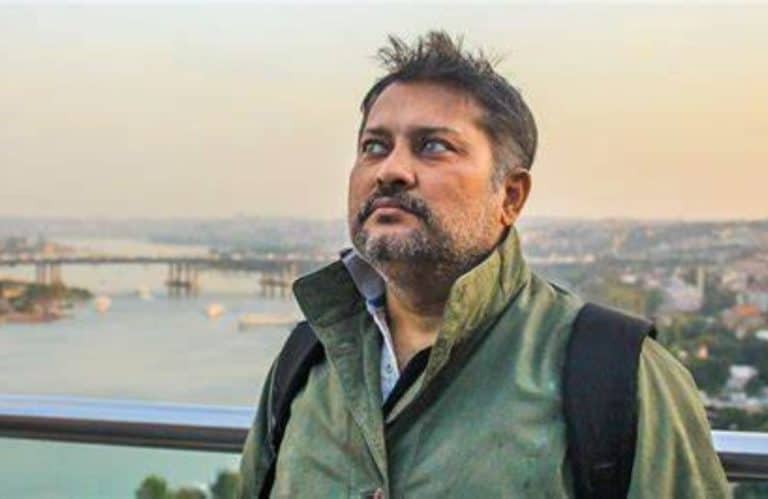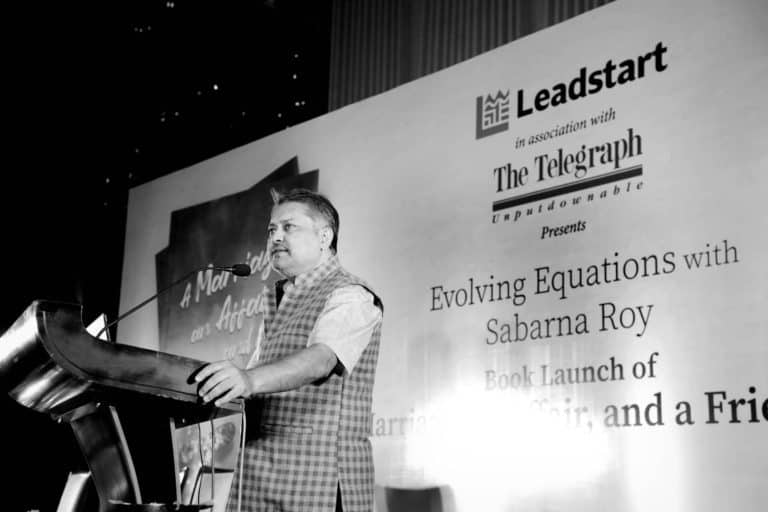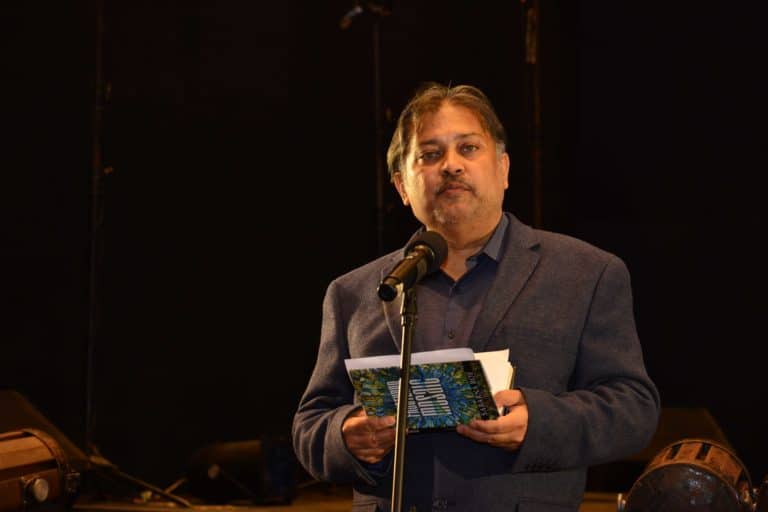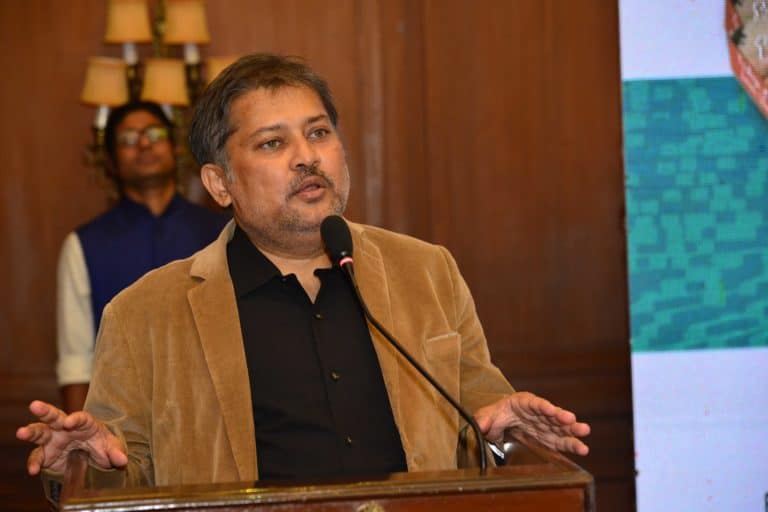Sabarna Roy: An Indian Storyteller
Sabarna Roy was born in Calcutta on December 15, 1967. He is presently working as the Senior Vice President [Business Development] at Electrosteel Castings Limited.
Writing always has been the semblance of our emotions and is often used to portray our deepest emotions. Our writings in more ways than one decipher our own personality and world-view.
Sabarna Roy is one such writer in this post-modern times who has portrayed the various complex yet real emotions playing inside a human being! He has always touched those aspects of the human story, which either other writers are afraid of or ignore in order to venture a safer path. His creativity is bereft of any boundaries as he has always led by example and has mastered into various forms whether it be novels, dramas, poesies, stories or any other form which could serve the true purpose of literature. Mr Roy has penned down various literary masterpieces under various titles which are: Pentacles; Frosted Glass; Abyss; Winter Poems; Random Subterranean Mosaic: 2012 – 2018, and Etchings of the First Quarter of 2020.
Sabarna’s long-short story, The Prank in Frosted Glass is one of the brightest examples of black comedy. His novella, New Life from Pentacles and Incomplete Conversations Set Pieces from Random Subterranean Mosaic: 2012-2018 experiments with incomplete prose leaving almost everything to the imagination of his readers. This intentional incompleteness not only tests the imagination of readers but also gives us a reality check of our own morality. Duality, the novella from his latest book, is a drama of ideas and not characters; ideas in this novella become characters, which by itself is an experimental style of writing in Indian English writing. Abyss, Sabarna’s full-length play in two acts is only a crime thriller on the surface; it is actually an examination of very critical ideas, like land for agriculture versus land for industrialization, and the working ethics of an author, and the intricacies of the mother-daughter relationship in upper-class society.
Sabarna in his literary writings excels in narrations of love, loss, betrayal, and melancholy around urban life in Calcutta/Kolkata between the 1970s and today, spanning a time frame of five decades. Even though his writings have been centralized to Calcutta/Kolkata, Mr Roy has transcended boundaries as there is no denying the fact that his priceless words and dramas have touched souls which are independent of any boundaries, class, caste or economic strata.
Sabarna writes in the long-short stories Fallen Man in Frosted Glass, as follows: –
“The storm was rising far away from me. It was dredging with it columns of sand and ash, creating an opaque screen between where I stood and what lay in front of me. I was standing
at the feet of the Stoke glacier, on one of the over-hanging verandahs of the Stoke Palace. People talked about the symmetry of Buddhist art. Old thankas hung against the Palace walls. A part of the Palace was converted into a museum displaying various artefacts of the Royal family of Ladakh. The storm raged for a long time and as it weakened gradually it revealed colossal ash mountains across the valley of Ladakh. The Sindhu River flowed through the desert valley, leafless vegetation all around. The River looked like a lonely traveller. As I craned my neck to see the mountain peaks across the valley I sighted a million birds in the sky, violet in colour, flying from one mountain range to the other. Night was falling. The ashen texture of the surroundings was slowly dissolving into the impending blackness. The guards in the Palace Museum asked us to leave. I saw a lama kid with a crimson hood on his head, on the road below, looking at my face intently. His eyelashes did not flutter. The eyes were big rounds of black bitumen. As I came out of the Palace and went down the road looking for him, he had vanished. I stayed in a camp by the Sindhu River. It was bitterly cold, dry and windy. As I gulped down multiple puffs, I felt unprecedented warmth spreading through my bones, and I dreamt of the infant lama, the serenity of the Pangyong Lake, the wind, the violet birds and the Sindhu River.”
Mr Roy is a keen observer of urban life, decadence, hyper-modernization, class and caste wars, environmental degradation, relationships of love and lust, and the duality of morals and ethics. Sabarna’s writings are devoid of sentimentalization. They are dispassionate to the point of being coldhearted. He puts his characters and situations on the pedestal and illuminates them with drama and he writes his tales looking at this imaginative and intuitive theatre sometimes through absurdity, sometimes through surrealism, sometimes through magic realism, sometimes through the stream-of-consciousness and sometimes through stark realism. The prism of observation has made his writings stand through the test of time and has made his works attain a cult status!
Sabarna writes in End-Wall in Random Subterranean Mosaic: 2012 – 2018, as follows: –
“Was I left inside an airless chamber – a vacuum – in my intermittent dreams?
The chamber was made of glass panels – suffocating and chilling –
Outside I could see flakes of snow floating in mid-air
I was losing every bit of myself gradually –
My alphabets
My words
My sentences
My paragraphs
My stories
I could no longer breathe inside the chamber
My insides were churning – on the verge of a violent vomit –
As my eyes closed, I saw my mother – disheveled – running wildly inside the jungle away from me
And, then I saw them coming back to me like hurling rockets –
My alphabets
My words
My sentences
My paragraphs
My stories
Like colorful graffiti on the end-wall”
Owing to his academic background, Mr Roy is a First Class Civil Engineering Honours Graduate, having passed out from Jadavpur University in 1988. Thereafter, he joined the Corporate Sector and has been with the Electrosteel Group for the last 25 years. Today, he is the Senior Vice President taking care of Business Development, Applications Technology, and Strategy. He is a keen and a passionate engineer, who has also written a technical book with two of his colleagues as his Co-authors and book is titled: Articles on Ductile Iron Pipelines and Framework Agreement Contracting Methodology. This book also has been so popular that it has been translated into 8 major European languages.
In his Technical book, Sabarna makes a very important point, which is stated as follows: –
“Life Cycle Cost Analysis (LCCA) is an analytical tool that evaluates the cost of a product over its entire life cycle. LCCA is used internationally by governments and industries to obtain the complete understanding of a product or process life cycle and provide decision makers a tool for appropriate decision.
LCCA is commonly referred to as a “cradle-to-grave” analysis. LCCA is well suited to compare alternative products with differing cost expenditures over the useful service life.”
Source: metrostarng.com

